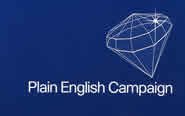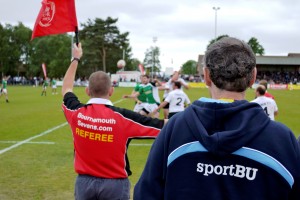
 Not necessarily! The lay summary is an extremely important part of most research bids. Most researchers think they write it well, and yet many bids fail because it is not ‘lay enough’. The topic was debated at this year’s ARMA conference (Association of Research Managers and Administrators) in bonnie Glasgow. The highlights of the session are detailed below.
Not necessarily! The lay summary is an extremely important part of most research bids. Most researchers think they write it well, and yet many bids fail because it is not ‘lay enough’. The topic was debated at this year’s ARMA conference (Association of Research Managers and Administrators) in bonnie Glasgow. The highlights of the session are detailed below.
A lay summary is used to explain complex ideas and technical and scientific terms to people who do not have a prior knowledge about the subject. A lay audience is heterogeneous (it includes the general public, patients and users of the science, politicians and other decision-makers, and researchers in different disciplines such as potential research collaborators). A lay summary is a requirement at application stage by most funding bodies, including the UK research councils.
When applying to UK research councils you are normally allowed up to 4,000 characters for your lay summary. There is no need to use all of these characters; often being concise is good for a lay audience! There are also some funding bodies that enforce a much stricter word limit, such as the British Heart Foundation who only allow up to 100 words for a lay summary.
What is the definition and purpose of a lay summary?
This very much depends on which funding body you are applying to as they all have their own definitions. For example, the Je-S Help Guide states the summary should be “written so that it will be understood by a non-specialist audience” but each of the different research councils have their own definition, such as:
EPSRC – “Using simple terms you are asked to describe your proposed research in a way that can be publicised to a general audience. It is very important that you make every effort to ensure that your summary is understandable to someone who is not an expert in your field. This is the section of your application that, if successful, EPSRC will use for publicity purposes. You should also note that the Outline panels who will review your proposal will be drawn from across EPSRC’s remit and will not necessarily have expertise in your research area.”
ESRC – “Write in plain English. Your proposal is likely to be seen by a great many people, some of whom will not be versed in your particular specialisation. Detail and specification may necessitate the use of disciplinary or technical terminology and this will be clear to peer reviewers, but the ideas you wish to convey and your reasons for doing so should be apparent to a wide audience. By the same token, do take the trouble to check spelling, grammar and punctuation. These are all part of the quality of presentation and presentation matters!
What is the story you are telling?
What is the audience?
Why does it matter?
Why now?
Why are they the best person to carry out this research?”
One of the most concise and succinct definitions is provided by Buckland et al (2007): “a brief summary of a research project or a research proposal that has been written for members of the public rather than researchers or professionals. It should be written in plain English, avoid the use of jargon and explain any technical terms that have been included”. [1]
These different definitions are very confusing! But in essence a lay summary has three main requirements:
- To paint the bigger picture
- To answer who, what, where, when, why, how?
- Be written in plain English
 Painting the bigger picture: The lay summary is your first chance to impress the reviewer! Reviewers are very busy and in the majority of cases the lay summary is the first (and sometimes the only) part of a grant application that he/she will read. It is therefore vitally important that it is interesting, easy to read and conscise. It needs to give an overview of the whole project – the background, aims and expected impact.
Painting the bigger picture: The lay summary is your first chance to impress the reviewer! Reviewers are very busy and in the majority of cases the lay summary is the first (and sometimes the only) part of a grant application that he/she will read. It is therefore vitally important that it is interesting, easy to read and conscise. It needs to give an overview of the whole project – the background, aims and expected impact.
Answer who, what, where, when, why, how?: It may sound harsh but many reviewers will read research proposals and be left asking themselves ‘so what?’. Your lay summary needs to answer this by explaining why the project is exciting, relevant and timely, and worth funding now above all of the other submitted proposals. Lay summaries are normally used by funding bodies to promote the research project so think about who is likely to read your lay summary, should your proposal be funded, and ensure you answer these ‘who, what, where, when, why and how’ questions with these various readers in mind. For example, your lay summary may be used in the following ways:
- by politicians in raising and justifying research funds from government;
- to justify public spending on research;
- to attract new collaborators such as industrial partners and researchers from different disciplines
- by press officers to promote your research to the public
 Be written in plain English: A strong lay summary will always explain any technical terms used, spell out abbreviations, and avoid using jargon. It will also be written in ‘plain English’ but what exactly does this mean?
Be written in plain English: A strong lay summary will always explain any technical terms used, spell out abbreviations, and avoid using jargon. It will also be written in ‘plain English’ but what exactly does this mean?
- Titles should be simple and clear. The European Commission’s FP7 guidance states that titles should be understandable to the non-specialist in the field. The best format for a title is to give a short statement followed by a colon and then a brief explanation.
 Simple analogies should be used to help the reader make sense of complex ideas. Arthritis Research UK suggest a good example of this is Bill Bryson’s book ‘A Short History of Nearly Everything’ [2] which uses analogies of everyday objects and activities to explain complex scientific concepts. Whilst simple analogies might mean that you lose detail and may not be perfect then strengthen your proposal if they make your ideas clearer to the reader.
Simple analogies should be used to help the reader make sense of complex ideas. Arthritis Research UK suggest a good example of this is Bill Bryson’s book ‘A Short History of Nearly Everything’ [2] which uses analogies of everyday objects and activities to explain complex scientific concepts. Whilst simple analogies might mean that you lose detail and may not be perfect then strengthen your proposal if they make your ideas clearer to the reader.- Clear layout – avoid using English phrases (such as ‘the lion’s share’) as these may not be understood by the reader. Avoid using double negatives as they cloud meaning. Order the paragraphs logically – start with the problem your research aims to solve so the reader can identify with this first. Break up blocks of text with bullet points, shorter paragraphs, etc. It is good practice to match the layout with the layout of your objectives. Do not use jargon (unless it is defined and explained in the summary) and ensure all abbreviations are spelt out.
Media / public engagement training courses: The UK research councils offer media/public communications training courses. These are highly recommended within the sector and offer good value for money. Most councils allow you to include the costs in your research proposal providing you justify it in your case for support, otherwise the training is free to funded students or grant holders. For example:
BU’s internal peer review scheme (RPRS): Support for writing and strengthening research proposals (including writing a good lay summary) is available via the internal Research Proposal Review Service (RPRS). Visit the RPRS webpage for further information!
References:
[1] Buckland, S. et al (2007) Public Information Pack. How to get actively involved in NHS, public health and social care research. INVOLVE Public Information Pack 4 available at: http://www.invo.org.uk/pdfs/pip44jargonbuster.pdf
[2] Bryson, B (2004) A Short History of Nearly Everything, Black Swan: London

 Why do I need to think about the impact of my research?
Why do I need to think about the impact of my research?


 Dr Martin Pickard is coming to BU on 23rd and 24th November 2011 to deliver interactive workshops on the preparation of research council applications.
Dr Martin Pickard is coming to BU on 23rd and 24th November 2011 to deliver interactive workshops on the preparation of research council applications. 






 Members of the Arts and Humanities Research Council’s Peer Review College have resigned over the council’s continued refusal to remove references to the government’s Big Society slogan from its delivery plan.
Members of the Arts and Humanities Research Council’s Peer Review College have resigned over the council’s continued refusal to remove references to the government’s Big Society slogan from its delivery plan. Dr Richard Shipway
Dr Richard Shipway In my opinion, an active involvement with reviewing (be it on behalf of either a research council or an academic journal) is important for several reasons: firstly, it enhances our own continued professional development; secondly it provides opportunities to be associated with particular research councils or academic journals; thirdly, an active involvement is an important addition to your CV; and fourthly, reviewing can provide opportunities to view new research before anybody else and enables us to remain up to date with emerging research trends and directions. As such, if asked to review work for a research council or an academic journal, my advice to colleagues would be to acknowledge and accept the significant time commitment involved with this process, but to grasp the opportunity for the benefits it can potentially provide.
In my opinion, an active involvement with reviewing (be it on behalf of either a research council or an academic journal) is important for several reasons: firstly, it enhances our own continued professional development; secondly it provides opportunities to be associated with particular research councils or academic journals; thirdly, an active involvement is an important addition to your CV; and fourthly, reviewing can provide opportunities to view new research before anybody else and enables us to remain up to date with emerging research trends and directions. As such, if asked to review work for a research council or an academic journal, my advice to colleagues would be to acknowledge and accept the significant time commitment involved with this process, but to grasp the opportunity for the benefits it can potentially provide. The European Commission is always recruiting academic reviewers. See our
The European Commission is always recruiting academic reviewers. See our 
 Not necessarily! The lay summary is an extremely important part of most research bids. Most researchers think they write it well, and yet many bids fail because it is not ‘lay enough’. The topic was debated at this year’s ARMA conference (Association of Research Managers and Administrators) in bonnie Glasgow. The highlights of the session are detailed below.
Not necessarily! The lay summary is an extremely important part of most research bids. Most researchers think they write it well, and yet many bids fail because it is not ‘lay enough’. The topic was debated at this year’s ARMA conference (Association of Research Managers and Administrators) in bonnie Glasgow. The highlights of the session are detailed below. Painting the bigger picture: The lay summary is your first chance to impress the reviewer! Reviewers are very busy and in the majority of cases the lay summary is the first (and sometimes the only) part of a grant application that he/she will read. It is therefore vitally important that it is interesting, easy to read and conscise. It needs to give an overview of the whole project – the background, aims and expected impact.
Painting the bigger picture: The lay summary is your first chance to impress the reviewer! Reviewers are very busy and in the majority of cases the lay summary is the first (and sometimes the only) part of a grant application that he/she will read. It is therefore vitally important that it is interesting, easy to read and conscise. It needs to give an overview of the whole project – the background, aims and expected impact. Be written in plain English: A strong lay summary will always explain any technical terms used, spell out abbreviations, and avoid using jargon. It will also be written in ‘plain English’ but what exactly does this mean?
Be written in plain English: A strong lay summary will always explain any technical terms used, spell out abbreviations, and avoid using jargon. It will also be written in ‘plain English’ but what exactly does this mean? Simple analogies should be used to help the reader make sense of complex ideas.
Simple analogies should be used to help the reader make sense of complex ideas.  Dr Janet Dickinson,
Dr Janet Dickinson,  6ST will provide a deep understanding of how the increasingly multiple forms of temporality and spatiality influence travel mode choices and the ways in which people and ‘things’ might be willing to share certain personal travel information. This will be achieved through the novel use of smart phone and tagging technology to provide data feeds on activity and availability, monitored through a Platform that will anticipate opportunities for connections that are then made visible to users in the social network. The contribution from Bournemouth University focuses on reducing car dependence at UK tourism destinations. A series of experiments at campsites will explore to what extent the tagging of vehicles linked to dynamic data repositories of tourists daily experiences, needs and desires can break down social barriers and facilitate more cooperation. This enhanced temporal and spatial visibility could lead to better use of public transport, lift sharing to and from attractions, and the co-ordinated movement of ‘things’ (in terms of provisions) required by the collective members of the campsite.
6ST will provide a deep understanding of how the increasingly multiple forms of temporality and spatiality influence travel mode choices and the ways in which people and ‘things’ might be willing to share certain personal travel information. This will be achieved through the novel use of smart phone and tagging technology to provide data feeds on activity and availability, monitored through a Platform that will anticipate opportunities for connections that are then made visible to users in the social network. The contribution from Bournemouth University focuses on reducing car dependence at UK tourism destinations. A series of experiments at campsites will explore to what extent the tagging of vehicles linked to dynamic data repositories of tourists daily experiences, needs and desires can break down social barriers and facilitate more cooperation. This enhanced temporal and spatial visibility could lead to better use of public transport, lift sharing to and from attractions, and the co-ordinated movement of ‘things’ (in terms of provisions) required by the collective members of the campsite. 6ST seeks to reduce energy consumption and emissions from the transport sector through an increase in adoption of sustainable travel modes and lower carbon travel choices.
6ST seeks to reduce energy consumption and emissions from the transport sector through an increase in adoption of sustainable travel modes and lower carbon travel choices.
 I am delighted to tell you that BU has been awarded the AHRC Block Grant Partnership: Capacity Building Scheme grant that we applied for early this year. The final numbers are given below:
I am delighted to tell you that BU has been awarded the AHRC Block Grant Partnership: Capacity Building Scheme grant that we applied for early this year. The final numbers are given below:










 SPROUT: From Sustainable Research to Sustainable Research Lives
SPROUT: From Sustainable Research to Sustainable Research Lives BRIAN upgrade and new look
BRIAN upgrade and new look Seeing the fruits of your labour in Bangladesh
Seeing the fruits of your labour in Bangladesh Exploring Embodied Research: Body Map Storytelling Workshop & Research Seminar
Exploring Embodied Research: Body Map Storytelling Workshop & Research Seminar Marking a Milestone: The Swash Channel Wreck Book Launch
Marking a Milestone: The Swash Channel Wreck Book Launch ECR Funding Open Call: Research Culture & Community Grant – Application Deadline Friday 12 December
ECR Funding Open Call: Research Culture & Community Grant – Application Deadline Friday 12 December MSCA Postdoctoral Fellowships 2025 Call
MSCA Postdoctoral Fellowships 2025 Call ERC Advanced Grant 2025 Webinar
ERC Advanced Grant 2025 Webinar Update on UKRO services
Update on UKRO services European research project exploring use of ‘virtual twins’ to better manage metabolic associated fatty liver disease
European research project exploring use of ‘virtual twins’ to better manage metabolic associated fatty liver disease